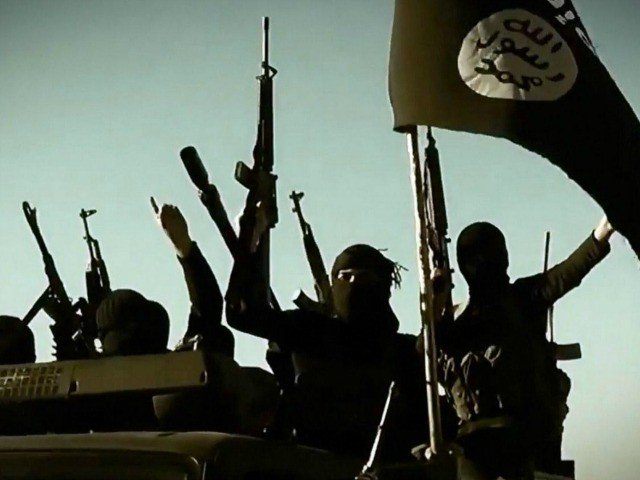As the Shiite Houthi rebels who have taken over Sanaa continue to wage war against troops loyal to deposed Yemeni President Abd Rabbuh Mansur Hadi, the Sunni Islamic State (ISIS/ISIL) terrorist group has taken credit for another Shiite mosque bombing, stating that they plan to “take revenge” upon the Houthis for attempting to control the country.
Two bombs went off on Tuesday–one in the capital of Sanaa and one in the southern city of al-Bayda–at Shiite mosques. According to Houthi-run news sources, “numerous” people were killed and injured in both. In Sanaa, the terrorists chose a mosque close to a hospital, which caused a number of additional injuries. The bomb in al-Bayda, also targeting those attending evening prayers during Ramadan, killed at least four people, reports note; at least ten people died in both combined attacks.
The bombs followed a day in which almost 200 were killed by Houthi clashes with Sunni supporters of Hadi, as well as airstrikes by neighboring Saudi Arabia against Houthi targets.
The Islamic State took credit online for the mosque bombings. The statement claimed that the attack was a way the jihadists had “taken revenge” against the Houthis. While both the Houthis and Islamic State jihadists share many values–the official Houthi slogan is “Death to America, death to Israel, damnation to the Jews and victory to Islam”–the Shiite/Sunni divide has proven greater than their shared objectives of destroying the West and damning the Jews, such that ISIS jihadists in Yemen have almost entirely dedicated themselves to bombing Shiite mosques.
The Islamic State also claimed credit for a similar bombing on June 22. The group “said in a statement published on militant Twitter accounts that the attack was targeting the Houthi militia, whose fighters have used the mosque, located in the old city of Sanaa.” ISIS’s first major move in Yemen, in March, was also the bombing of a Shiite mosque, where they killed 130 people. By April, the Islamic State had released one of its signature propaganda videos establishing itself as the premier terrorist group in Yemen, challenging al-Qaeda in Yemen, the largest wing of that terrorist organization. ISIS itself is an outgrowth of al-Qaeda, changing its name from al-Qaeda in Iraq following its split to form a new group.
While the war between Hadi supporters and Houthis rages in Yemen, a micro-struggle has developed between ISIS and al-Qaeda. While ISIS continues to attack Houthi targets, the group has made clear it does so to establish itself over al-Qaeda and attract more recruits. Officials have noted that there are clear signs ISIS “sought to steal al-Qaeda’s thunder” with more dramatic terrorist attacks against the Houthis. Al-Qaeda also opposes the Houthis, but rather than targeting Shiite Muslims generally, it has offered a bounty for the leader of the Houthi rebellion and made clearer its opposition to the political faction than its condemnation of Shiite Islam.
The civil war in Yemen has killed more than 1,500 since March, according to the United Nations. The UN estimates that around 80 percent of Yemeni civilians are dependent on humanitarian aid for food and water, and is demanding an immediate ceasefire to provide more aid.

COMMENTS
Please let us know if you're having issues with commenting.